Choosing the Right Public Adjuster in Florida: A Comprehensive Guide
When disaster strikes and your property is damaged by a hurricane, fire, or other unforeseen events, the road to recovery can seem overwhelming. In Florida, where the threat of hurricanes is a constant reality, having a skilled and trustworthy advocate by your side is crucial. This is where a Public Adjuster comes into play – a professional who can help you navigate the complex world of insurance claims and ensure you receive the compensation you rightfully deserve.

Step-by-Step Guide to Selecting the Ideal Public Adjuster in Florida:
Step 1: Research and Referrals
Begin your journey by researching Public Adjusters in Florida. Use search engines, social media, and local directories to compile a list of potential candidates. Additionally, seek recommendations from friends, family, or acquaintances who have had positive experiences with Public Adjusters in the past. Personal referrals can provide valuable insights into the quality of service offered.
Step 2: Verify Credentials and Licensing
Before considering any Public Adjuster, it’s essential to verify their credentials and licensing. In Florida, Public Adjusters are required to be licensed by the state. Make sure the Public Adjuster you’re considering is licensed and in good standing. You can usually confirm this information through the Florida Department of Financial Services website.
Step 3: Check Experience and Expertise
Experience is a key factor when choosing a Public Adjuster. Look for professionals who have a proven track record of handling cases similar to yours. An experienced Public Adjuster will have the knowledge and expertise to navigate the intricacies of insurance policies and negotiations effectively.

Step 4: Read Reviews and Testimonials
Online reviews and client testimonials can provide valuable insights into the quality of service a Public Adjuster offers. Look for patterns in feedback and pay attention to how the Public Adjuster has helped clients in challenging situations. Reviews can help you gauge the level of professionalism, communication, and dedication to client satisfaction.
Step 5: Schedule Consultations
Once you’ve narrowed down your list, reach out to the Public Adjusters to schedule consultations. During these consultations, discuss your specific situation, ask about their approach to handling claims, and inquire about their fees. Pay attention to how well they communicate and whether they listen to your concerns and needs.
Step 6: Evaluate Communication
Effective communication is vital in any partnership, especially during times of distress. Assess how responsive and transparent the Public Adjuster is during your interactions. A professional who keeps you informed and addresses your questions promptly is more likely to provide a smoother experience throughout the claims process.

Step 7: Compare Fees and Agreements
Different Public Adjusters may have varying fee structures. Some work on a contingency basis, while others charge hourly fees or a combination of both. Compare the fee agreements of different Public Adjusters and ensure you fully understand their terms before making a decision.
Step 8: Trust Your Instincts
Ultimately, trust your instincts. Choose a Public Adjuster with whom you feel comfortable and confident. Your gut feeling about their integrity, commitment, and ability to represent your interests can guide you toward making the right choice.
In the aftermath of a disaster, having a reliable Public Adjuster can make all the difference in getting your life back on track. By following these steps and thoroughly researching your options, you can find the ideal Public Adjuster to guide you through the insurance claims process and ensure you receive the compensation you deserve.

